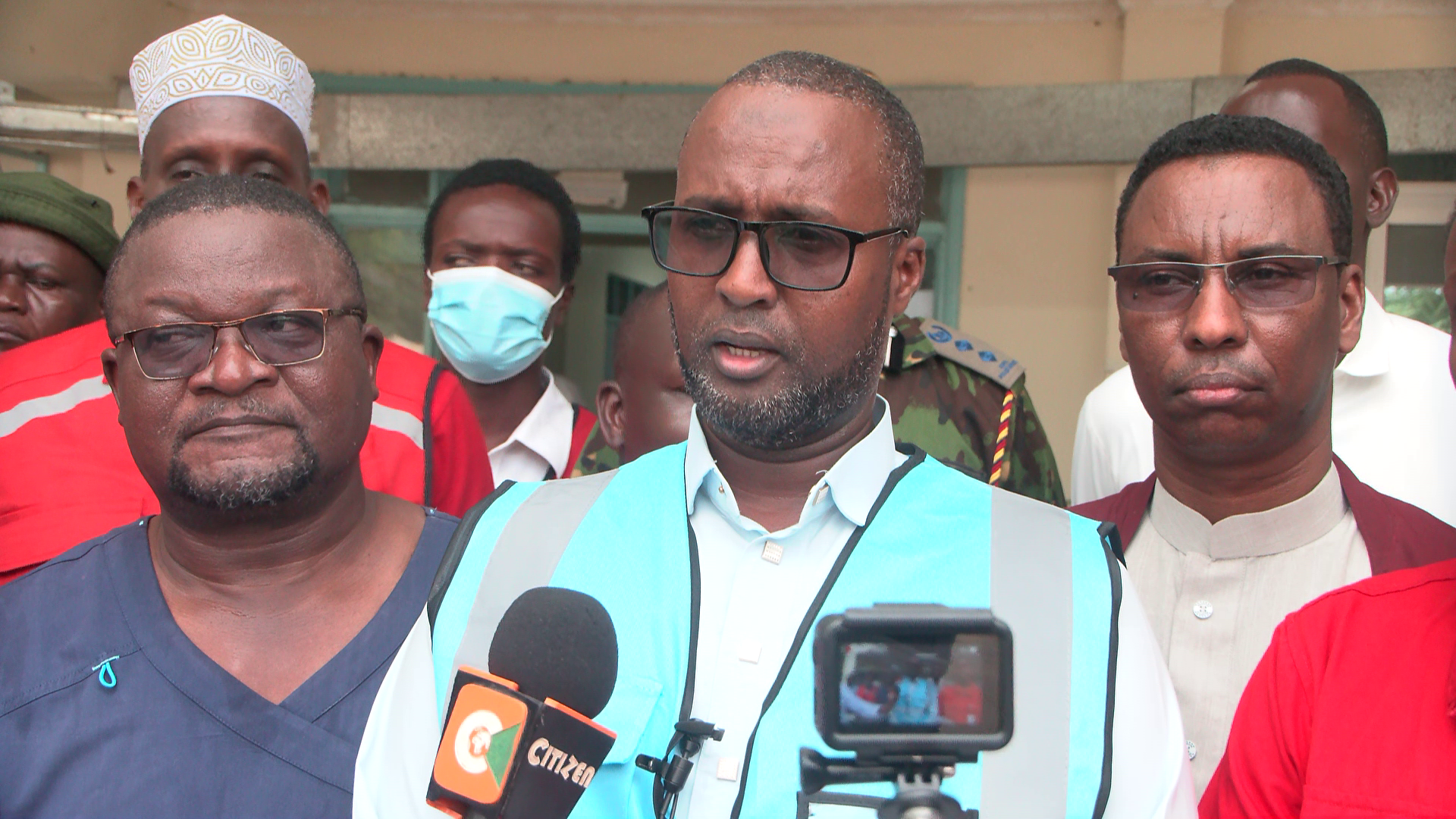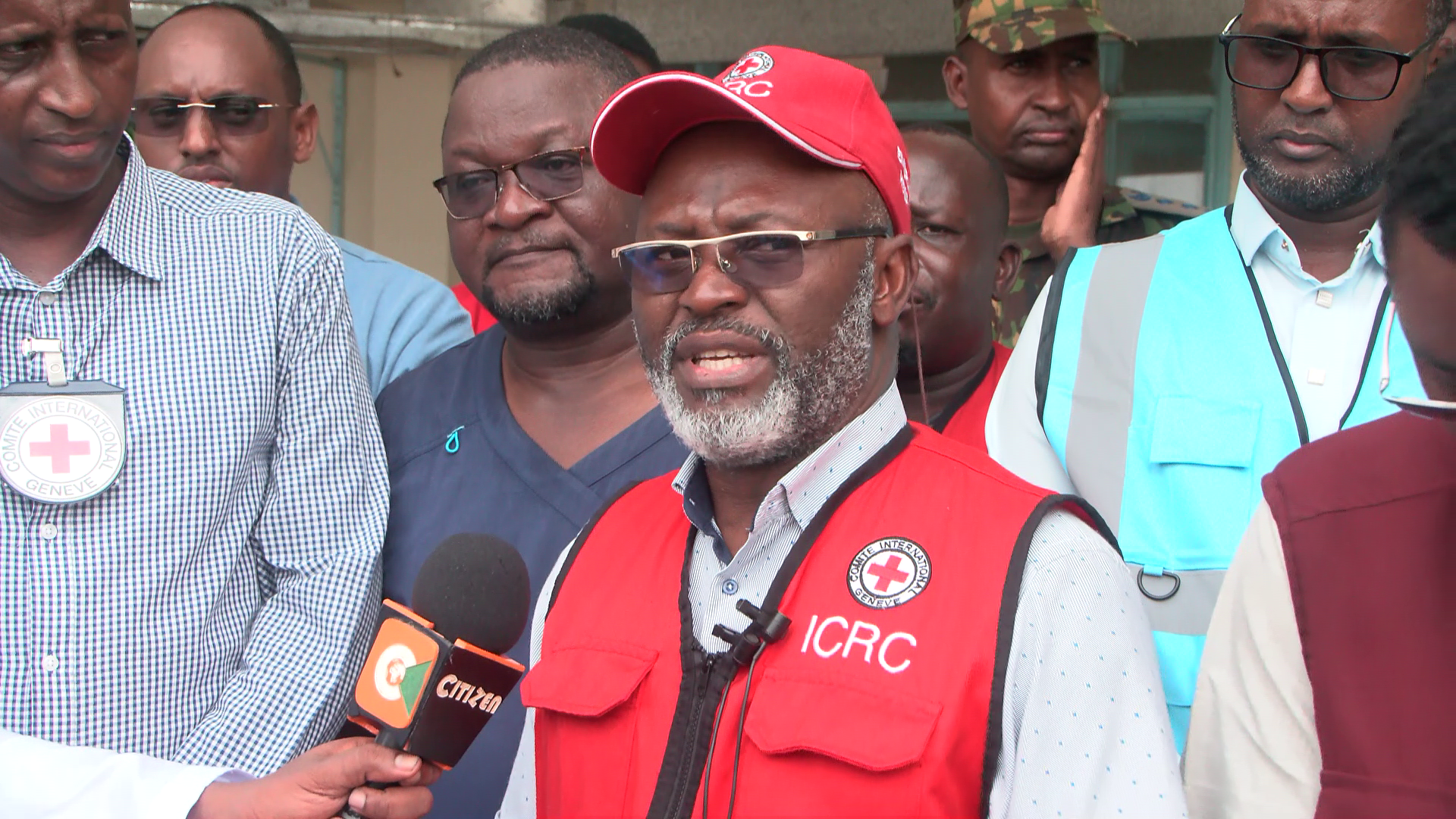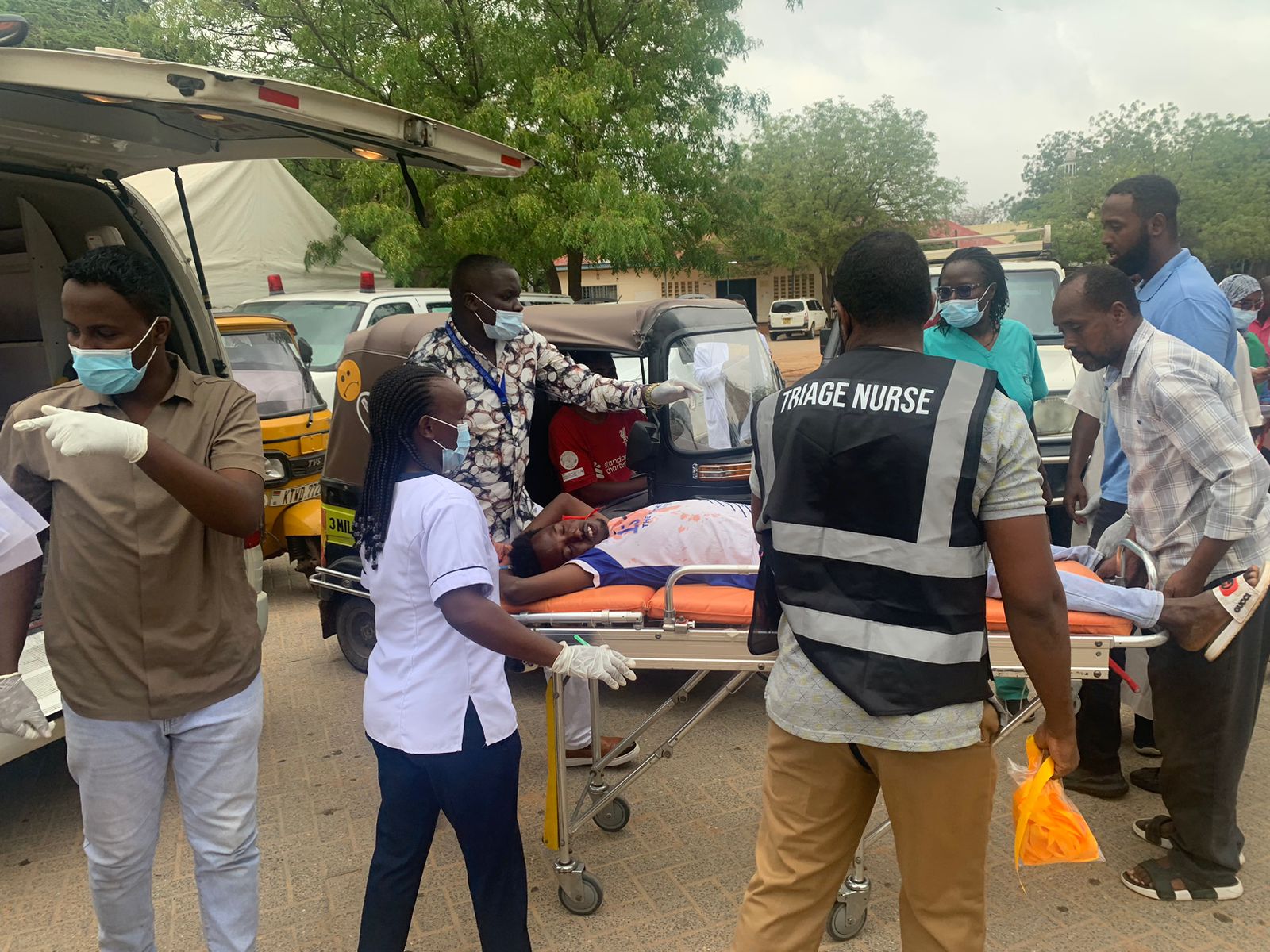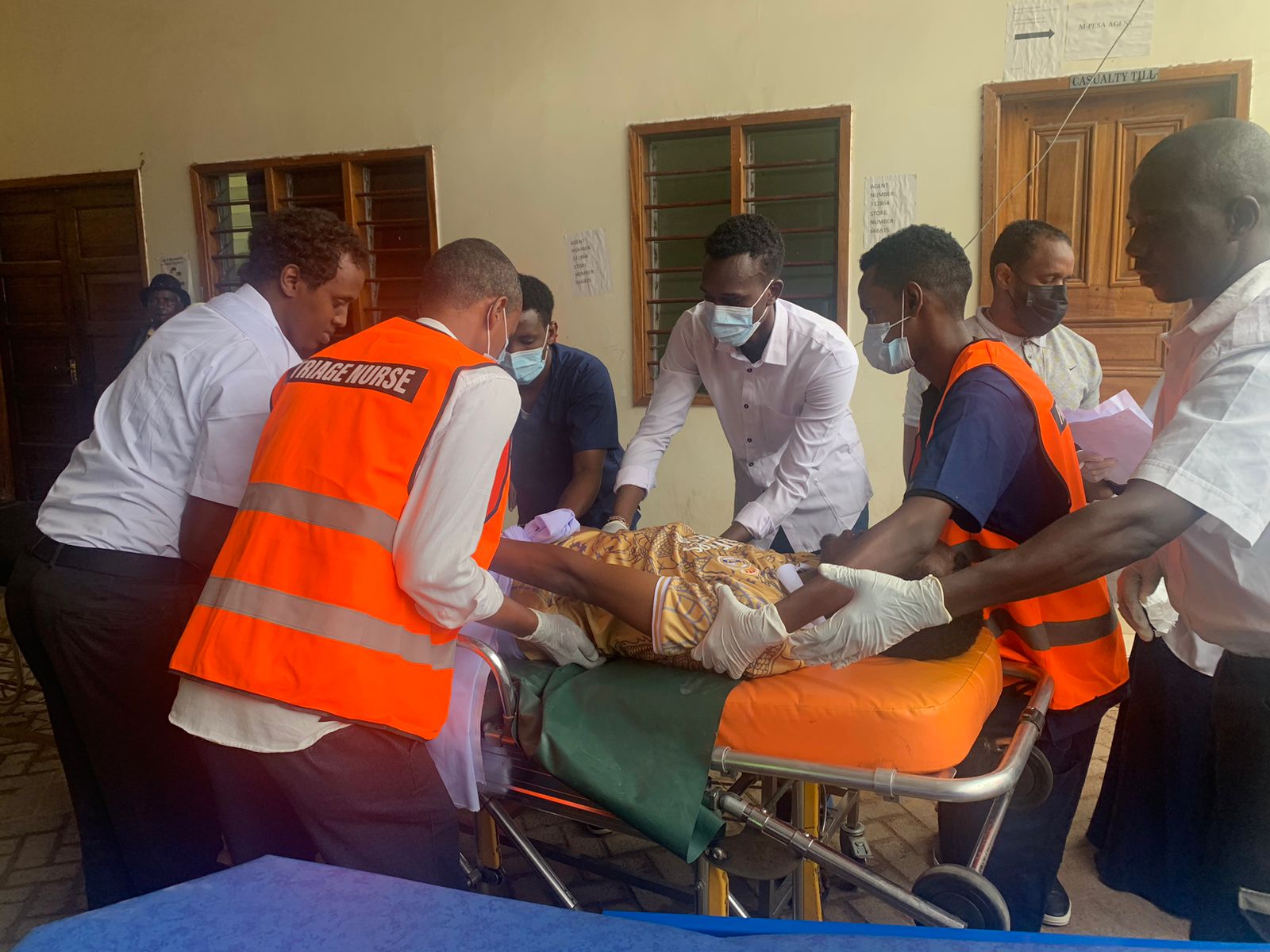 Garissa County referral hospital acting Chief Executive
Officer, Dr. Hussein Buro./STEPHEN ASTARIKO
Garissa County referral hospital acting Chief Executive
Officer, Dr. Hussein Buro./STEPHEN ASTARIKO
 Medical staff and the Kenya Red Cross personnel attend to an
accident victim during the assimilation exercise./STEPHEN ASTARIKO
Medical staff and the Kenya Red Cross personnel attend to an
accident victim during the assimilation exercise./STEPHEN ASTARIKO Medical staff and the Kenya Red Cross personnel attend to an
accident victim during the assimilation exercise./STEPHEN ASTARIKO
Medical staff and the Kenya Red Cross personnel attend to an
accident victim during the assimilation exercise./STEPHEN ASTARIKO
The Kenya Red Cross Society, in
partnership with the International Committee of the Red Cross, yesterday staged
a mass-casualty drill in Garissa to test the county’s preparedness for
large-scale emergencies.
The simulation, carried out without
prior notice to medical personnel, caught Garissa County Referral Hospital off
guard—an intentional move designed to mirror the unpredictability of real
disaster situations.
Sirens wailed and ambulances tore
through the hospital gates, confusing members of the public who hurriedly
gathered outside the Accident and Emergency Unit, forcing police to push back
the swelling crowd.
Officials said the drill was of a
bus involved in an IED attack on the
Garissa-Dadaab Road with about 30 casualties.
Staff at the Garissa County Referral
Hospital ran towards the ambulances with stretchers ready to receive patients.
Mock victims started to stream in,
triggering an urgent mobilisation of staff and resources.
There was a standstill for like 20
minutes with nurses running up and down, pushing, shoving, and receiving
patients from the ambulance.
Locals who thought there was a real
emergency stood perhaps asking where these casualties were coming from.
Garissa
County, Kenya, Red Cross coordinator Daud Ahmed said the
goal was not only to evaluate the hospital’s ability to mount a coordinated
response under pressure, but also to strengthen any weaknesses that may have
occurred.
“We set up an emergency command
centre, a blood donation tent and other critical units needed during a real
emergency,” he said, calling for even stronger coordination among partner
agencies.
“As the Kenya Red Cross, we pledge
to work with all healthcare workers, including the county government, to ensure
there is a seamless response in incase of disaster,” he said.
Doctor Simiyu Tabu, a consulting
surgeon at Moi Teaching and Referral Hospital and a volunteer with ICRC, said
the exercise was to test the referral hospital’s preparedness to receive mass
casualties.
“From the security at the gate to
control vehicles and human traffic, as well as the triage to categories who
needed immediate and delayed care and even those, we may have lost them,
everything went smoothly,” he said.
The hospital’s CEO Dr Hussein Buro, said the staff at the hospital are well
equipped and prepared in the event of mass casualties, appreciating the work of
the ICRC in training staff in such unforeseeable critical events.
“Challenges are always there.
Sometimes we might not be able to handle some cases. That is why today we had
to refer some patients to KNH for specialised treatment,” Buro said.
Global surgeon specialist with
ICRC, Kenneth Nnaetio, said the drill capped off intensive training offered to
hospital staff and security agencies.
“Mass-casualty events are chaotic
and overwhelming. Today’s drill tested preparedness levels, highlighted
existing gaps and will guide improvements moving forward,” he said.
The dramatic exercise, though a
simulation, offered a stark reminder of the harsh realities the region
continues to face—and the critical importance of readiness when real tragedy
strikes.






![[PHOTOS] Three dead, 15 injured in Mombasa Rd crash](/_next/image?url=https%3A%2F%2Fcdn.radioafrica.digital%2Fimage%2F2025%2F11%2Fa5ff4cf9-c4a2-4fd2-b64c-6cabbbf63010.jpeg&w=3840&q=100)










